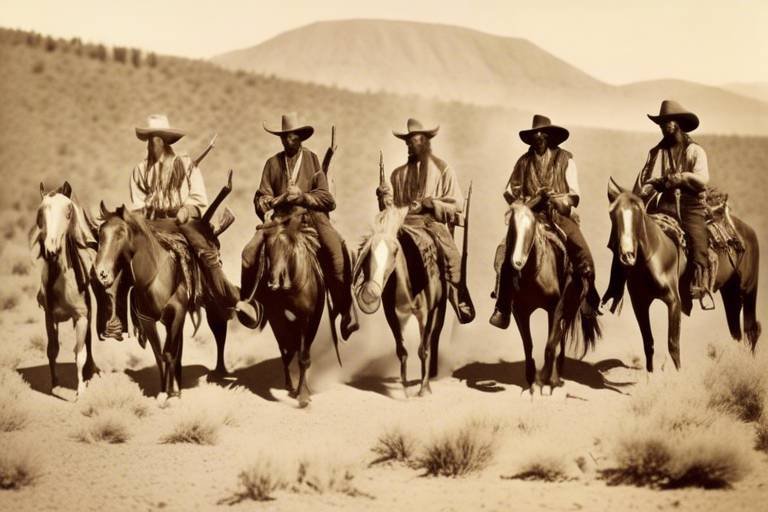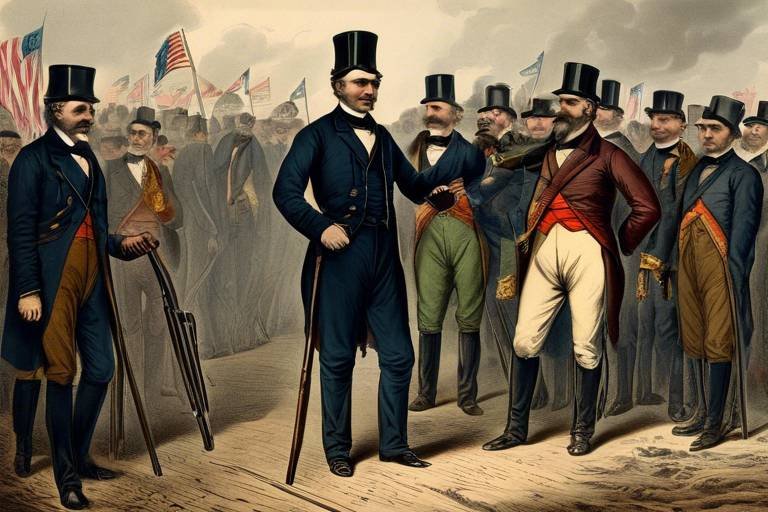The Historical Context of the Napoleonic Wars
The Napoleonic Wars were a series of significant global conflicts that took place between 1803 and 1815, involving France and various coalitions. These wars had a profound impact on European history, shaping the political, social, and economic landscape of the continent for years to come.
At the heart of the Napoleonic Wars were a complex set of factors that fueled the conflict. Napoleon's ambitious expansionist policies, the aftermath of the French Revolution, and the desire for hegemony in Europe all contributed to escalating tensions that eventually erupted into full-scale warfare.
One of the key catalysts for the Napoleonic Wars was Napoleon's relentless pursuit of power and territory, which often put him at odds with other European powers seeking to maintain their own influence. This power struggle set the stage for a series of military campaigns and battles that would define the era.
As the Napoleonic Wars unfolded, Europe witnessed a series of key battles and campaigns that showcased Napoleon's military prowess and strategic genius. From the decisive victory at Austerlitz to the dramatic showdown at Waterloo, these battles shaped the course of the wars and the fate of nations.
The impact of the Napoleonic Wars extended far beyond the battlefield, bringing about profound changes in European society. The wars led to widespread social upheaval, economic disruption, and shifts in governance that affected millions of lives across the continent.
Following the conclusion of the Napoleonic Wars, Europe found itself grappling with a new reality shaped by the conflict. Borders were redrawn, nationalism surged, and power dynamics shifted, setting the stage for further upheaval and transformation in the 19th century.
Napoleon Bonaparte's rise to power and eventual downfall during the Napoleonic Wars is a story of ambition, military brilliance, and political intrigue. From humble beginnings as a Corsican artillery officer, Napoleon ascended to become Emperor of the French, leaving an indelible mark on European history.
Diplomacy played a crucial role in the Napoleonic era, with alliances, treaties, and negotiations shaping the course of the wars. The intricate web of diplomatic maneuvers, betrayals, and shifting allegiances influenced the outcomes of key battles and decisions throughout the conflict.
Technological innovations in warfare also played a significant role in the Napoleonic Wars, revolutionizing the way battles were fought. Rifled muskets, artillery advancements, and logistical improvements transformed the battlefield, showcasing the rapid evolution of military technology during that era.

Causes of the Napoleonic Wars
Napoleonic Wars were a series of major global conflicts fought between France and various coalitions from 1803 to 1815. This article explores the political, social, and economic factors that led to the outbreak of the Napoleonic Wars and their impact on European history.
Tensions arose due to Napoleon's expansionist policies, the French Revolution, and the desire for hegemony in Europe, leading to a series of wars that reshaped the political landscape of the continent.
From Austerlitz to Waterloo, the Napoleonic Wars saw numerous significant battles and campaigns that showcased Napoleon's military genius and the shifting alliances among European powers.
The Napoleonic Wars brought about social upheaval, economic disruption, and changes in governance, affecting the lives of millions of people across Europe and beyond.
The aftermath of the Napoleonic Wars led to the redrawing of borders, the rise of nationalism, and the emergence of new power dynamics that would shape the course of European history in the 19th century.
Napoleon's ascent from a Corsican artillery officer to Emperor of the French was a remarkable journey marked by military victories, political maneuvering, and a vision of a unified Europe under French leadership.
Diplomatic efforts and alliances played a crucial role in shaping the course of the Napoleonic Wars, with treaties, negotiations, and betrayals influencing the outcomes of key battles and decisions.
The Napoleonic Wars witnessed the use of new military technologies such as rifled muskets, artillery advancements, and logistical improvements that revolutionized the way wars were fought during that era.
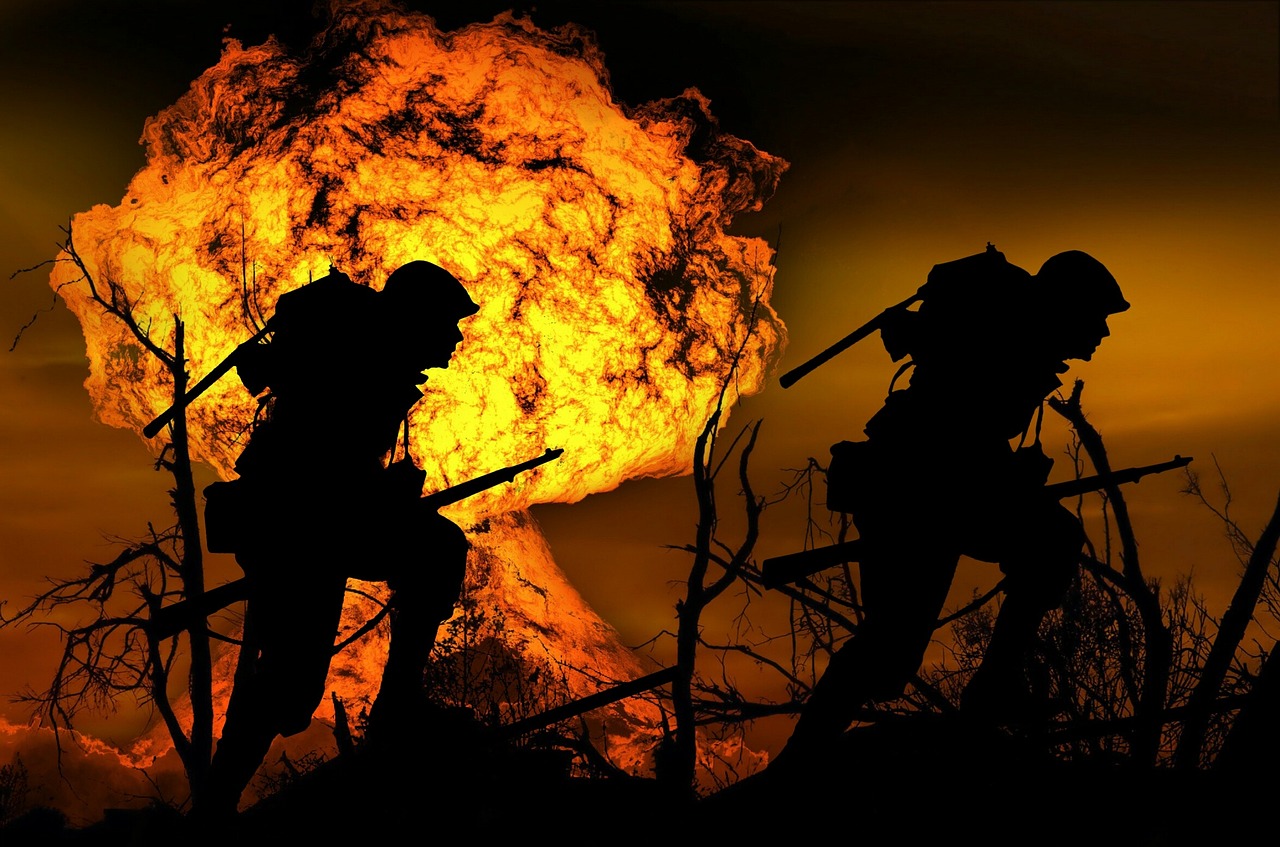
Key Battles and Campaigns
Napoleonic Wars were a series of major global conflicts fought between France and various coalitions from 1803 to 1815. This article explores the political, social, and economic factors that led to the outbreak of the Napoleonic Wars and their impact on European history.
Tensions arose due to Napoleon's expansionist policies, the French Revolution, and the desire for hegemony in Europe, leading to a series of wars that reshaped the political landscape of the continent.
During the Napoleonic Wars, several key battles and campaigns played a pivotal role in shaping the course of the conflicts. From the famous Battle of Austerlitz, where Napoleon showcased his military brilliance by decisively defeating the combined forces of Austria and Russia, to the Battle of Waterloo, which marked the final defeat of Napoleon by the British and Prussian forces, each engagement left a lasting impact on European history.
One of the most notable campaigns was the Peninsular War, where the French faced fierce resistance from the Spanish and Portuguese forces, leading to a prolonged conflict that drained French resources and manpower. Additionally, the invasion of Russia in 1812, culminating in the disastrous retreat from Moscow, highlighted the challenges of waging war in harsh winter conditions.
The Napoleonic Wars brought about significant social upheaval across Europe. The conscription of soldiers, economic disruptions caused by warfare, and the imposition of French laws and institutions in occupied territories all contributed to a sense of turmoil and uncertainty among the population. The wars also accelerated the spread of nationalist sentiments as various regions sought to assert their identity and autonomy in the face of French dominance.
The aftermath of the Napoleonic Wars reshaped the political map of Europe. The Congress of Vienna in 1815 aimed to restore stability and redraw borders, setting the stage for a new era of diplomacy and power dynamics. The wars also fuelled the rise of nationalism and inspired movements for independence in regions under foreign control, laying the groundwork for future conflicts and alliances.
Napoleon's ascent from a humble Corsican artillery officer to the Emperor of the French is a testament to his military prowess and political acumen. Through a series of victories on the battlefield and strategic alliances with key figures, Napoleon consolidated his power and established himself as a dominant force in European politics. His vision of a unified Europe under French leadership drove his ambitious campaigns and conquests, leaving a lasting legacy on the continent.
Diplomacy played a crucial role in the Napoleonic Wars, with shifting alliances and backroom negotiations shaping the course of conflicts. Treaties such as the Treaty of Tilsit and the Treaty of Amiens temporarily halted hostilities but ultimately failed to prevent further wars. Betrayals and alliances of convenience among European powers influenced the outcomes of key battles and decisions, highlighting the intricate interplay between military strategy and diplomatic maneuvering.
The Napoleonic Wars witnessed significant advancements in military technology that revolutionized the nature of warfare. Innovations such as rifled muskets, which improved accuracy and range, artillery developments that increased firepower and precision, and logistical improvements that enhanced supply chains and troop movements all contributed to the evolution of military tactics and strategies during this period.
Coming soon...

Impact on European Society
The Napoleonic Wars had a profound impact on European society, causing widespread social upheaval and economic disruption. The relentless conflicts and shifting alliances reshaped the lives of millions of people, leaving a lasting mark on the fabric of European civilization.
One of the most significant consequences of the Napoleonic Wars was the disruption of traditional social structures. The constant warfare and occupation of territories led to widespread displacement of populations, destruction of homes, and loss of livelihoods. Families were torn apart, communities were uprooted, and the social fabric of many regions was irrevocably altered.
Moreover, the economic impact of the Napoleonic Wars was staggering. The constant need for resources to sustain the war effort drained the economies of European nations, leading to inflation, scarcity of goods, and widespread poverty. Trade routes were disrupted, industries were decimated, and the financial stability of many countries was thrown into disarray.
Furthermore, the Napoleonic Wars brought about changes in governance and political structures across Europe. The rise and fall of empires, the redrawing of borders, and the imposition of new laws and regulations all contributed to a reconfiguration of power dynamics on the continent. The concept of nationalism began to take root as people sought to define their identities in the wake of the tumultuous events of the era.
Additionally, the impact of the Napoleonic Wars extended beyond Europe, influencing colonial territories and global trade networks. The disruption caused by the conflicts reverberated across the Atlantic and beyond, shaping the course of world history in ways that are still felt today.
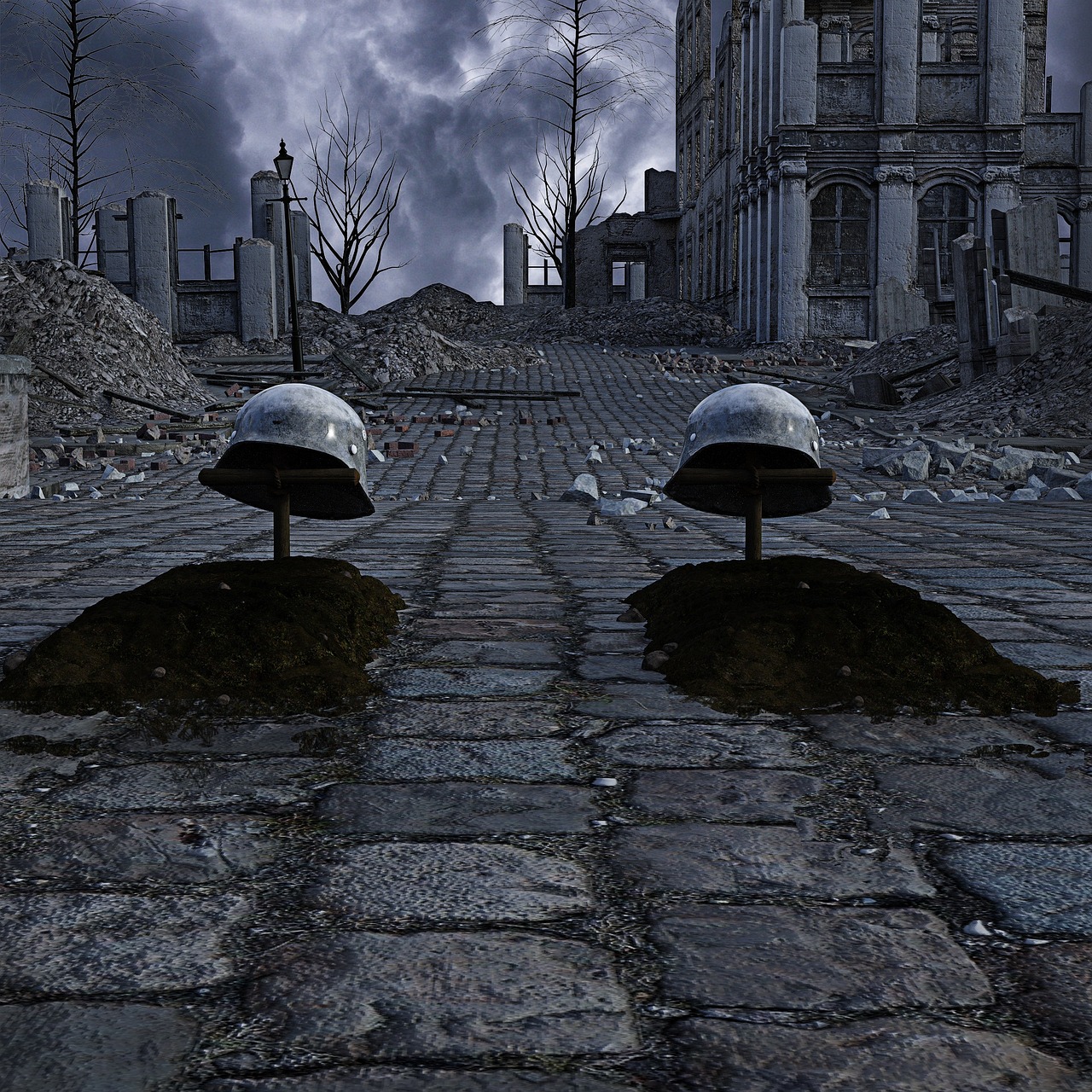
Legacy of the Napoleonic Wars
The Legacy of the Napoleonic Wars reverberated throughout Europe, leaving a lasting impact on the continent's political landscape and societal structures. The aftermath of these conflicts reshaped the boundaries of nations, fueled the rise of nationalism, and set the stage for significant power shifts in the 19th century.
One of the most profound legacies of the Napoleonic Wars was the redrawing of borders across Europe. The Congress of Vienna in 1815 sought to restore stability after years of turmoil, leading to territorial adjustments that aimed to create a balance of power among European nations. This restructuring laid the foundation for a new geopolitical order that would influence international relations for decades to come.
Furthermore, the Napoleonic Wars fueled the flames of nationalism across the continent. The idea of national identity and sovereignty gained momentum as people rallied behind the cause of independence and self-determination. This surge of nationalism would play a pivotal role in the revolutions and uprisings that characterized the 19th century, shaping the modern nation-states we know today.
The legacy of the Napoleonic Wars also extended to the realm of military strategy and tactics. The innovative warfare methods employed by Napoleon, such as the Corps system and rapid maneuvering, set new standards for military operations. These tactics would be studied and emulated by future generations of military leaders, influencing the evolution of warfare in the years to come.
Moreover, the Napoleonic Wars had a profound impact on the balance of power in Europe. The defeat of Napoleon at Waterloo marked the end of an era dominated by French hegemony and paved the way for a multipolar world order. The Congress of Vienna aimed to prevent the emergence of a single dominant power, leading to a system of alliances and counterbalances that sought to maintain stability on the continent.
For the FAQ section, you can use the following format:Q: What were the main causes of the Napoleonic Wars?
A: The Napoleonic Wars were primarily caused by Napoleon's expansionist policies, the aftermath of the French Revolution, and the quest for hegemony in Europe.
Q: How did the Napoleonic Wars impact European society?
A: The Napoleonic Wars brought about social upheaval, economic disruption, and changes in governance, affecting millions of lives across Europe.
Q: What was the significance of the Congress of Vienna in the aftermath of the Napoleonic Wars?
A: The Congress of Vienna aimed to restore stability in Europe by redrawing borders, promoting nationalism, and establishing a balance of power among European nations.
Q: How did the Napoleonic Wars influence military tactics and strategy?
A: Napoleon's innovative military tactics, such as the Corps system and rapid maneuvering, set new standards for warfare and influenced future generations of military leaders.

Napoleon Bonaparte's Rise to Power
Napoleon Bonaparte's journey from a humble Corsican artillery officer to the powerful Emperor of the French is a tale of ambition, strategic brilliance, and sheer determination. Born in 1769 on the island of Corsica, Napoleon displayed exceptional military acumen from a young age. His rise to power was not just a personal triumph but a seismic shift in European history, reshaping the continent's political landscape for years to come.
As Napoleon navigated the tumultuous waters of post-Revolutionary France, he swiftly climbed the ranks of the military, showcasing his tactical prowess in key battles such as the Siege of Toulon. His decisive victories and charismatic leadership style earned him the admiration of his troops and the attention of the ruling Directory, paving the way for his meteoric rise to prominence.
Emboldened by his military successes and fueled by a grand vision of a unified Europe under French dominance, Napoleon staged a daring coup d'état in 1799, overthrowing the Directory and establishing himself as the First Consul of France. This marked the beginning of his dictatorial rule, characterized by sweeping reforms, centralization of power, and a relentless pursuit of glory on the battlefield.
With each conquest and treaty, Napoleon solidified his grip on power, eventually proclaiming himself Emperor in 1804. His coronation at Notre Dame Cathedral in Paris symbolized not only his personal ascent but also the zenith of French imperial ambition, casting a long shadow over the continent and sending shockwaves through the established monarchies of Europe.
Through a combination of military might, political cunning, and sheer force of will, Napoleon Bonaparte transformed himself from an obscure Corsican outsider into the most powerful figure in Europe, shaping the course of history with each decisive stroke of his sword and pen.
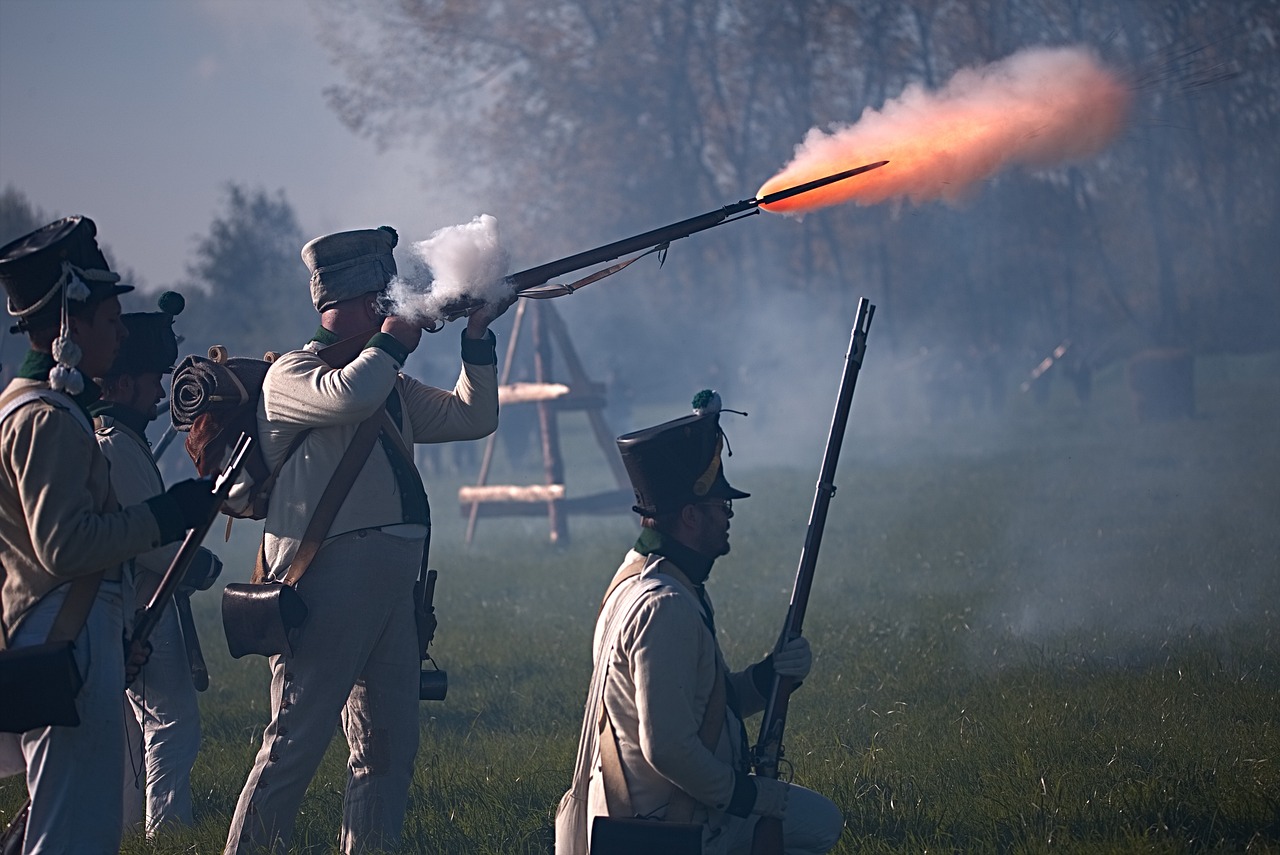
Role of Diplomacy in the Napoleonic Era
In the tumultuous era of the Napoleonic Wars, diplomacy played a pivotal role in shaping the course of events and determining the outcomes of key battles and decisions. The intricate web of alliances, treaties, and betrayals among European powers influenced the direction of the conflicts and the balance of power on the continent.
At the heart of the Napoleonic Era, diplomatic efforts aimed to secure advantageous positions, forge strategic alliances, and undermine the strength of adversaries. Treaties were crafted and negotiations conducted behind closed doors, often with shifting allegiances and hidden agendas at play.
Napoleon Bonaparte, a master strategist both on the battlefield and in the realm of diplomacy, skillfully manipulated relationships with other nations to further his ambitions of European dominance. His ability to leverage diplomatic channels to his advantage was as formidable as his military prowess.
Throughout the Napoleonic Wars, diplomacy served as a double-edged sword, capable of both securing victories through alliances and causing devastating defeats through betrayals. The intricate dance of diplomacy often determined the fate of nations and the course of history during this turbulent period.
As the stakes grew higher and the conflicts more intense, the role of diplomacy became increasingly crucial in navigating the complex web of international relations. Decisions made at the diplomatic table could have far-reaching consequences on the battlefield and in the corridors of power.
Ultimately, the Napoleonic Era stands as a testament to the power of diplomacy in shaping the destiny of nations and the course of history. The intricate interplay of alliances, negotiations, and diplomatic maneuvers during this time laid the foundation for the modern diplomatic landscape and left a lasting impact on European politics and society.

Technological Innovations in Warfare
Napoleonic Wars were a series of major global conflicts fought between France and various coalitions from 1803 to 1815. This article explores the political, social, and economic factors that led to the outbreak of the Napoleonic Wars and their impact on European history.
Tensions arose due to Napoleon's expansionist policies, the French Revolution, and the desire for hegemony in Europe, leading to a series of wars that reshaped the political landscape of the continent.
From Austerlitz to Waterloo, the Napoleonic Wars saw numerous significant battles and campaigns that showcased Napoleon's military genius and the shifting alliances among European powers.
The Napoleonic Wars brought about social upheaval, economic disruption, and changes in governance, affecting the lives of millions of people across Europe and beyond.
The aftermath of the Napoleonic Wars led to the redrawing of borders, the rise of nationalism, and the emergence of new power dynamics that would shape the course of European history in the 19th century.
Napoleon's ascent from a Corsican artillery officer to Emperor of the French was a remarkable journey marked by military victories, political maneuvering, and a vision of a unified Europe under French leadership.
Diplomatic efforts and alliances played a crucial role in shaping the course of the Napoleonic Wars, with treaties, negotiations, and betrayals influencing the outcomes of key battles and decisions.
The Napoleonic Wars witnessed the use of new military technologies such as rifled muskets, artillery advancements, and logistical improvements that revolutionized the way wars were fought during that era.
Q: What was the significance of the Napoleonic Wars in European history?
A: The Napoleonic Wars had a profound impact on European society, politics, and the balance of power in the continent. They reshaped borders, fueled nationalism, and set the stage for future conflicts.
Q: How did Napoleon's military strategies contribute to his success?
A: Napoleon's innovative tactics, rapid mobilization of troops, and ability to adapt to changing circumstances were key factors in his military achievements during the Napoleonic Wars.
Q: What role did technological advancements play in the outcome of the Napoleonic Wars?
A: The introduction of new military technologies such as more accurate firearms and improved artillery gave certain armies a strategic advantage, influencing the course of battles and campaigns.
Q: How did the Napoleonic Wars influence the development of modern warfare?
A: The Napoleonic Wars set a precedent for the use of mass conscription, strategic maneuvering, and centralized command structures, shaping the tactics and doctrines of future military conflicts.
Frequently Asked Questions
- What were the main causes of the Napoleonic Wars?
The Napoleonic Wars were primarily caused by Napoleon's expansionist policies, the aftermath of the French Revolution, and the quest for dominance in Europe. These factors led to a series of conflicts that engulfed the continent for over a decade.
- Which battles were the most significant during the Napoleonic Wars?
Key battles such as Austerlitz, Borodino, and Waterloo were pivotal in shaping the outcome of the Napoleonic Wars. These battles showcased Napoleon's military prowess and the shifting alliances among European powers.
- How did the Napoleonic Wars impact European society?
The Napoleonic Wars caused widespread social upheaval, economic turmoil, and changes in governance across Europe. Millions of lives were affected, and the wars left a lasting impact on the social fabric of the continent.
- What was the legacy of the Napoleonic Wars?
The aftermath of the Napoleonic Wars led to significant changes in European borders, the rise of nationalism, and the emergence of new power dynamics. These legacies continued to influence European history throughout the 19th century.
- How did Napoleon Bonaparte rise to power?
Napoleon's ascent from a humble Corsican artillery officer to the Emperor of the French was characterized by military victories, political maneuvering, and a vision of a unified Europe under French leadership. His rise to power reshaped the course of history.
- What role did diplomacy play in the Napoleonic Era?
Diplomatic efforts and alliances were crucial in determining the outcomes of key battles and decisions during the Napoleonic Wars. Treaties, negotiations, and betrayals all played a significant role in shaping the course of the conflicts.
- What technological innovations were witnessed during the Napoleonic Wars?
The Napoleonic Wars saw the introduction of new military technologies such as rifled muskets, advancements in artillery, and improvements in logistics. These innovations revolutionized the way wars were fought during that era.


